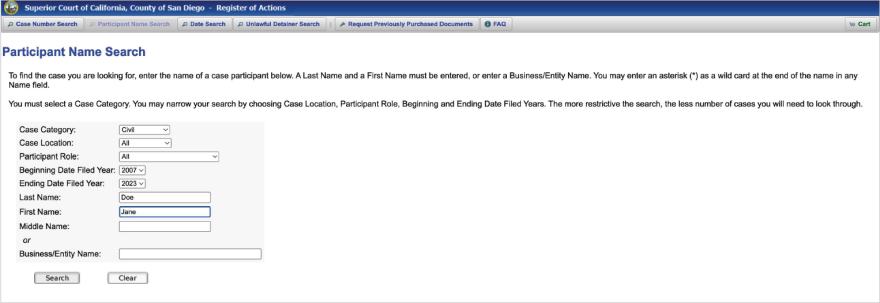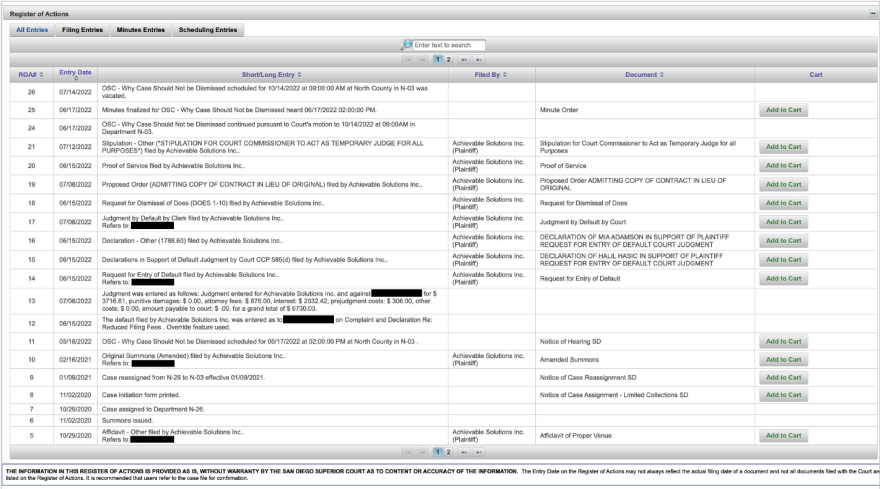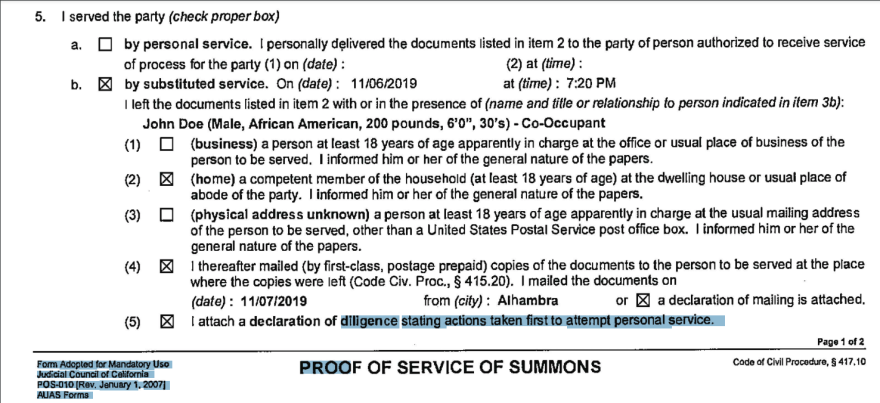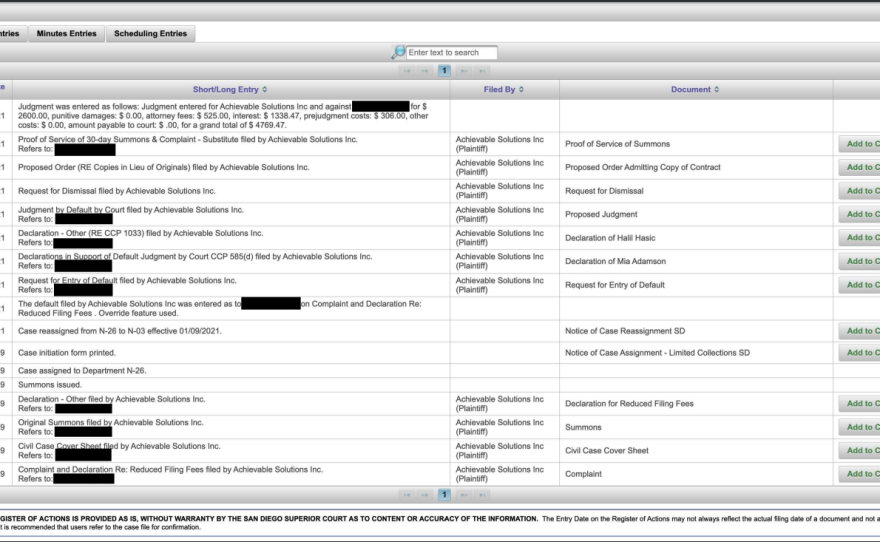Last week, inewsource released an investigation into a debt collector and process server company that have been accused in a lawsuit of a fraudulent scheme: suing people without notifying them.
When this happens intentionally, perhaps because a debt collector doesn’t want a defendant to argue the case in court, it’s known as “sewer service.” The practice can make it easier for debt collectors to win default judgments and then garnish someone’s wages or seize their assets.
But court records are public, and if you’re worried you might have been sued in San Diego County, you can easily look up information about your civil case, armed with nothing but your name. Here’s how:
Look up your case number
Head to this San Diego Superior Court case search page. You’ll have to agree to the site terms and submit to a security test to prove you’re human. Click on “Participant Name Search” at the top and use the drop downs to select “Civil” for case type. The other categories should automatically populate. Then type in your last and first names and click “Search.”

If your search pulls up any results, you’ll see some limited information, such as the case title, type and the date it was filed. Click on the case number to find out more. (Remember, other people might have the same name as you.)
Explore the Register of Actions
Once you pull up your case, you’ll be able to see much more information about it, including the judge overseeing your case and attorneys representing the various parties. You’ll also find the ROA, or Register of Actions, at the bottom of the page, which shows what actions have been taken and what documents have been filed with the court.

Unlike some other counties, San Diego County doesn’t make these documents available for free online. You can purchase them from your computer for a fee, or you can view them at the courthouse free of charge — apart from the costs of getting there — but you’ll still have to pay for copies.
The complaint — usually the first document filed in the court case — contains allegations against you and often some basic information on the evidence. The ROA may also contain a proof of service, which details a process server’s attempts to deliver the summons and complaint to you. In the event of a sewer service, you will have received nothing, but the document may show that a process server delivered the complaint to you or someone else at your address.

If the court has entered a judgment against you in a debt collection suit, details will also show up in the ROA.

While you’re at it…
It may also be worth searching your name in San Diego’s separate ROA site for small claims cases. Achievable Solutions, the debt collector from our story, has taken over some judgments from old cases, which can be renewed each decade and accrue up to 10% interest each year.
What to do next
If you discover that you might be a victim of sewer service, there are ways to fight back — which greatly improves your chances of a judge dismissing your case. A study of California debt collection cases found that people with attorneys are much more likely to have their cases dismissed. Those who represented themselves were still more likely to have a case thrown out than people who didn’t appear in court at all.
Regardless of whether you think sewer service was used, you can contact the Legal Aid Society of San Diego for help with a debt collection case.







